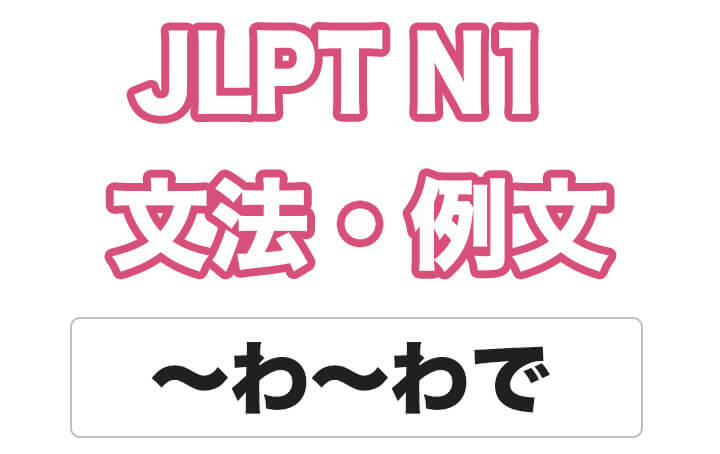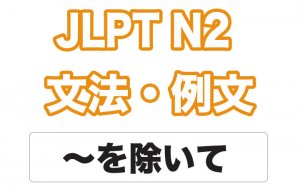
文型:〜わ〜わで
[意味]
"〜し、〜し"
「良くないこと、悪いことが一度に起こって困った」という意味。
話し手の不快な気持ち、嫌な気持ちを強調して言う時に使う。
[英訳]
"~ and ~"
It means "bad things or unpleasant events happened all at once, causing trouble."
It is used to emphasize the speaker's feelings of discomfort or displeasure.
[接続]
V(普通形)+わ+V(普通形)+わで
イA(普通形)+わ+イA(普通形)+わで
ナA(普通形)+わ+ナA(普通形)+わで
[JLPT レベル]
N1
例文
昨日はスマホは壊れるわ、財布は落とすわで、散々な1日だった。
Yesterday was a terrible day: my phone broke, and I lost my wallet.
今週はテストはあるわ、レポートの締め切りがあるわで、忙しい1週間になりそうだ。
This week is going to be busy: I have tests, and report deadlines.
この会社は給料は安いわ、残業は多いわで、最悪だ。
This company is the worst: low pay and lots of overtime.
このレストランの料理はまずいわ、値段は高いわで、もう二度と来ない。
This restaurant is terrible: the food is bad and the prices are high. I'm never coming back.
最近、彼女にフラれるわ、仕事をクビになるわで、ついてない。
Lately, I've had bad luck: I got dumped by my girlfriend and lost my job.
息子は大学を卒業しても、働かないわ、家事も手伝わないわで、今後が心配だ。
Even after graduating from college, my son doesn't work and doesn't help with housework. I'm worried about his future.
飲み会に誘っても、忙しいわ、金欠だわで誰も来てくれない。
When I invite people to a drinking party, no one comes because they're either busy or broke.
このホテル、サービスは悪いわ、お湯は出ないわで、止まるんじゃなかった。
This hotel is awful: the service is bad, and there's no hot water. I shouldn't have stayed here.




